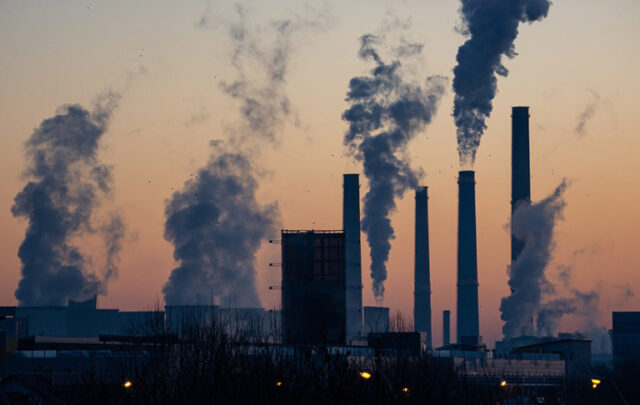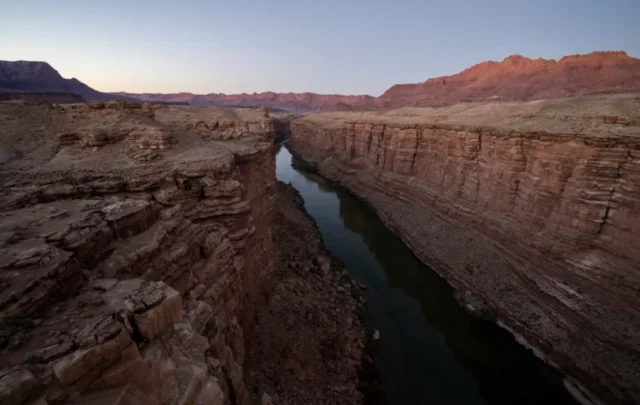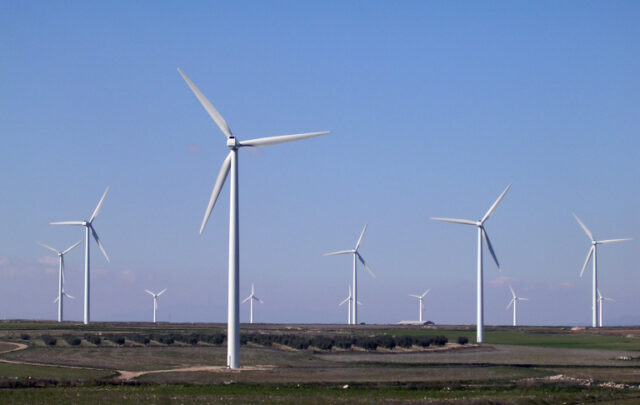We recently reached the 2 year anniversary of peakoilblues.com. To mark this milestone I invited back our earliest contributors to give us an update of how their lives have changed since they first wrote us two years ago. If you haven’t gotten a letter of invitation, (and several have bounced back undelivered…) please update us, and tell us what’s been happening in your life.
I began Peak Oil Blues attempting to understand how people respond to first learning about and living with an awareness of Peak Oil. It has been a fascinating two years. I’ve received letters from people all over the world from a remote Pacific Island,, to major metropolitan cities; from Alaska to Australia. Letters have come in from all over Europe, the USA, South America and parts of Asia. Folks read Peak Oil Blues in Singapore, Saudi Arabia, South Africa and the Swiss Alps. Peak Oil is an international issue and people are concerned about it all over the globe.
They most often mention learning about Peak Oil after reading James Howard Kunstler’s The Long Emergency (or watching the movie: “The End of Suburbia”) or Richard Heinberg “Powerdown” as their first book of introduction. Their emotions upon first “getting it,” is most often shock, followed by a range of emotions including grief, fear, numbness, panic, terror, compulsiveness, depression and trouble sleeping. Many report difficulty working well at their regular jobs for weeks or months following their grasp of the issue and instead begin a massive research project. Some have collected a library’s worth of books, so they could have references of every description when they need them, despite living in a rented apartment. Others processed the information unconsciously, half forgetting it for months or years, before returning to it. Many described receiving the news as similar to other major losses in their lives–a rape, the birth of a handicapped child, a divorce. Others “get it” right away, and begin to overhaul their lives.
Universally, contributors are most disturbed by the lack of coherent discussion about Peak Oil in the mainstream media. They frequently find it difficult to talk to spouses, family, friends, community members, colleagues (and here) or have a national discussion about the topic and this angers and depresses them. Marital problems are common, when one spouse is Peak Oil aware, and the other doesn’t want to hear about it, or continues a consumptive lifestyle. Some have had to rethink a distant love affair. People seem to suffer most from a lack of social support–a feeling that people are working together to ameliorate the effects of Peak Oil–and as a result, can sometimes feel like an outsider in their own homes or the communities they’ve lived in for decades.
Some have given up trying to talk about Peak Oil to those that aren’t receptive. There is often a feeling of having a deep dark secret that you can’t share with other people, without being ostracized or living a “double life.” Others feel “like the whole weight of the world is on my shoulders,” and have taken it upon themselves to warn others of what’s coming and encourage the massive social change that’s needed. They blame themselves when they face stiff resistance. As one almost-twenty year old wrote: “Sometimes just thinking about all this sort of stuff, it takes that much just to not go insane, or to not kill yourself. You can’t think about Peak Oil that much, truth be told, can’t think about the worst of the possible scenarios, or you will go mad.” Another recently commented that his nephew DID commit suicide, after becoming thoroughly versed in the Peak Oil ramifications. He was 19.
Clearly, this is a very serious issue with important implications to the mental health community.
Writers are enormously grateful to have a psychologist confirm that they aren’t crazy for being worried about Peak Oil. It seems to help just to know that they aren’t alone. It is an emotional roller coaster to learn about Peak Oil and believe that, if no one else around you appears upset, why should you be? One contributor wrote: ““Everyone else seems so happy and clueless.”
Peak Oil awareness can happen in stages or shifts in consciousness, and many mention two years as an important transition time before emotions and priorities seem to stabilize. People report feeling as if they are living in two realities: “Today with Oil” and “Tomorrow without Oil.” Some talk about it as a “nostalgia for the present.” Others report present reality as a “Matrix” (as in the popular movie by the same name) in which it is easy to forget there is such a thing as Peak Oil, or that oil depletion is even possible. As one writer put it: “The future seems so real to me that the present seems almost like the past…”
For all, there seems to be a profound change in priorities, spending habits, a disconnection from a consumer, consumptive lifestyle, and a heightened awareness of the finite nature of the planet and the huge footprint most of us in the “developed” world are leaving as a result of fossil fuel. The changes that people expect from themselves all take time, and often a dramatic reversal in their life’s direction. One described this change as like “giant freighters out at sea [which] can’t change direction suddenly. It takes them forty miles to turn around. That’s what it feels like for me, adjusting my life to Peak Oil. Making a long slow turn that sometimes feels like I’m not moving anywhere at all.” Contributors feel a need to make dramatic shifts quickly, and simultaneously realize that such an change in unlikely. I’ve noticed a phenomenon I call “geographical panic” in which there is a desire to “move somewhere safe” ” even when one already lives in a remote rural village…so powerful is the urge to “escape” and find refuge in the early stages. But rural living is not without its drawbacks, and some readers, especially those who are gay or lesbian, are uncertain just how warm the reception will be outside of their large urban enclaves.
Issues such as climate change, soil, water and mineral depletion, the falling worth of the US dollar, debt, population boom etc. are often deeply connected in the minds of those who write to me. Even if the energy issue was resolved tomorrow, most believe this would not solve the world’s problems. While some writers worry that these attitudes spell the desire for the “end of civilization,” others see it as a logical consequence of a life without oil, and they site examples of other cultures that have gone down that route.
Universally, there is greater interest in how we’ll go about feeding ourselves, and those that have never lifted a spade, have begun to learn about agriculture and permaculture. Some have a greater interest in CSA’s and getting to know farmers in their region, eating locally and eating in season. Others have begun to learn how to grow, preserve, and store food.
Learning about Peak Oil often shakes the very foundations of what we believe to be “real” and what is “fantasy.” It smashes our former version of what our futures were “suppose” to be, and provides such a completely different set of possibility, that the shift is disorienting. We worry about what sorts of “useful” skills we actually have for this upcoming future, what sort of vital role we can play. We consider doing jobs we’d find laughable before Peak Oil awareness. We find many of our current professions, which we are given great kudos for now, as irrelevant to what’s coming. We sometimes become strangers to ourselves, our priorities and values change so dramatically. We begin to question some of our most deeply held belief systems, and start embracing others that we scarcely knew existed.
For others, our attitude is “Bring it on!” We’ve been waiting and preparing for just such a cultural shift for decades. We’re living like our ancestors did, and loving it. Or we are anxiously awaiting a “crash” so we can become farmers, and the inability to live that lifestyle has left us angry, bigoted, and resentful about being stuck in a cubicle instead of being outside.
Those with considerable financial assets, describe changing their lives (and their homes) to a more energy-independent one. One contributor was in the petroleum industry and saw and heeded the writing on the wall.
We worry about our kids, more than anything. We worry that what we took for granted–a college education, traveling around the world, an easy consumer lifestyle, a viable planet–will be lost to them. We wonder what sort of advice we can now give to our children about “what to be when they grow up.” We want to raise our kids with an eye toward a future we see coming, but they don’t want to be known as the “weird survivalist” parents raising alienated kids. They would gladly make the tough decisions if they knew which ones to make. Or even if we ARE sure which are the correct ones, do we know whether our timing is right?. For example, being “off” about world events by 15 years is an entire childhood for one child or a substantial portion of a young person’s career. For others, their young adult children are beginning to come around, and see their parent’s energy concerns as “hip” and progressive–as long as they aren’t impacted negatively by the energy cutbacks.
For those who live with a condition needing medical care, Peak Oil adds another impossible layer on a life that has already been carefully managed. It is as if we suddenly realize that we’ve been graced with the easy of living in a time unlike any other in history. Oil has “normalized” living with our disabilities, and given us a level of independence and function unheard of in previous times. Without it, we don’t expect to survive well, if at all. Nevertheless, as one disabled film director said: “We play the hands we’re dealt, because if we don’t play, we definitely don’t win.” For many, this means reconnecting with friends and family in a new way, and finding out how to contribute despite the limitations that are present.
Peak Oil is credited for actually causing medical problems for some contributors, including back pain, headaches, anxiety disorder, panic disorder, depression. Stress disorders will not lessen in the future and will be from multiple causes. Mental health professionals please take note.
Some of my readers have a broad, trans-historical and cross-cultural view, and have read about or watched first hand as cultures turned from first-world to third-world civilizations quickly. “The roads were deteriorating due to little maintenance, gangs were forming and running the police. People abandoned maintaining their homes, cars and infrastructure and I just didn’t understand at that time what was going on.”
Like the anthropologist who wrote me, after spending a lifetime studying subsistence cultures, my readers who had an overall positive outlook on living and an appreciation for whatever they had, were the most optimistic about the future. They spoke of tough times as being part of life’s cycle. Depletion follows abundance. “Dieoff” leads to population corrections. These readers weren’t unrealistic about what was on its way. They were just glad to be alive and enjoying what they had, now. It was easier to have such an attitude, however, when we do not focus on how these changes will affect our children and grandchildren. Distant, general macro-views were easier to be philosophical about.
A great sense of gratitude for ones’ current abundance, and a desire to reconnect with nature are two other common treads. As one man wrote: “I am sitting here listening to the rain on the roof, realizing how much of this oil based economy has given me virtually for free, such as my laptop, the vinyl windows, the leather recliner, food, appliances. The list is stunning. I look at things with a whole new level of appreciation….I have grown so accustomed to its blessings that I am literally beginning from nothing again. Like a refugee, running to nature which I have so long ago forsaken.”
Our community efforts, although not without its trials, have provided a new sense of connectedness with others in our lives. Re-localize, scaling down, re-connecting on a personal level with nature and the people in it, are the words of hope I’ve heard again and again. Our world view has become radically local, and no longer are we willing to drive vast distances to socialize with the “right friends” pray at the “right houses of worship” and find the “perfect employment.” New priorities have required us to recognize the benefits and limitations of living close to home, making do, and getting along with others who don’t share identical values. As I like to say, we are learning how to be together and annoying each other in the process. And that’s alright.
In the two years since I’ve started this process, I’ve met some remarkable people, who have been generous with their time, knowledge, and interest. I’ve made friends, of whom I’m never likely to meet, in all parts of the world. Hopefully, I’ve been able to provide a bit of comfort or inspiration to those who have written to me, but not false hope. The distinction is an important one to me, as I believe there is great danger in what I call ‘psychological terrorism,’ in denying another person’s reality for political reasons. Things will get exceedingly tough AND there is much to be thankful for and to learn as we go down the energy descent.
I want to thank the many authors who have contributed pieces here: Chuckwk, Brian Merchant, Carla Royal, and In Her Own Voice. You’ve generously shared your thoughts here without pay and, for the most part, without larger societal recognition. You’ve made a contribution to an important body of work. I hope that’s enough.
Most of us are keenly aware that, although we can’t know for certain, we are fairly sure based on the past two years, that the next two will be difficult ones. In May 2006, gasoline was a bit under $2 a gallon. May 2008, it is a bit under $4. The climb isn’t likely to subside. I hope, as you’ve read the stories here, you’ll take heart to realize that in sharp contrast to being “alone” in your awareness, you are a part of a vast network of rhizomes, all working diligently toward semi-independence and collecting one’s own “unit” of resources, but all ready to rise up and grow together, when the situation presents itself. Prepare well, my friends, and don’t get disheartened because you are feeling alone in your community. Research and develop a vision of what is possible for your own small community and work tirelessly to bring that about, even if you feel like you work alone. That’s a short-term burden, I assure you.
Over the next two years, please continue to write to us and tell us your experiences. Great comfort is taken when our readers know that they aren’t alone in their struggles. Imitation is a great form of learning, as well. If you are doing something that works, something that keeps you sane and on track, share it. We welcome your participation. And we thank all who have contributed to this body of work.
Again, thanks for a great two years. You’ve all been very kind and generous to this psychologist/ chicken farmer, and I look forward to living in our upcoming “interesting times.”
Fondest Regards,
Kathy





